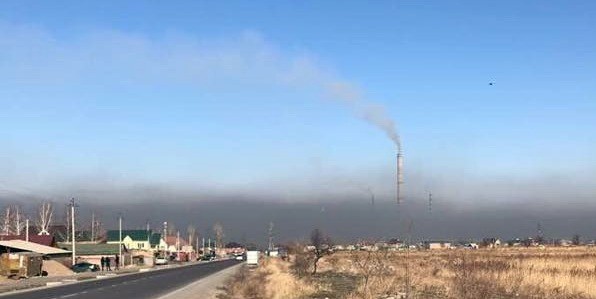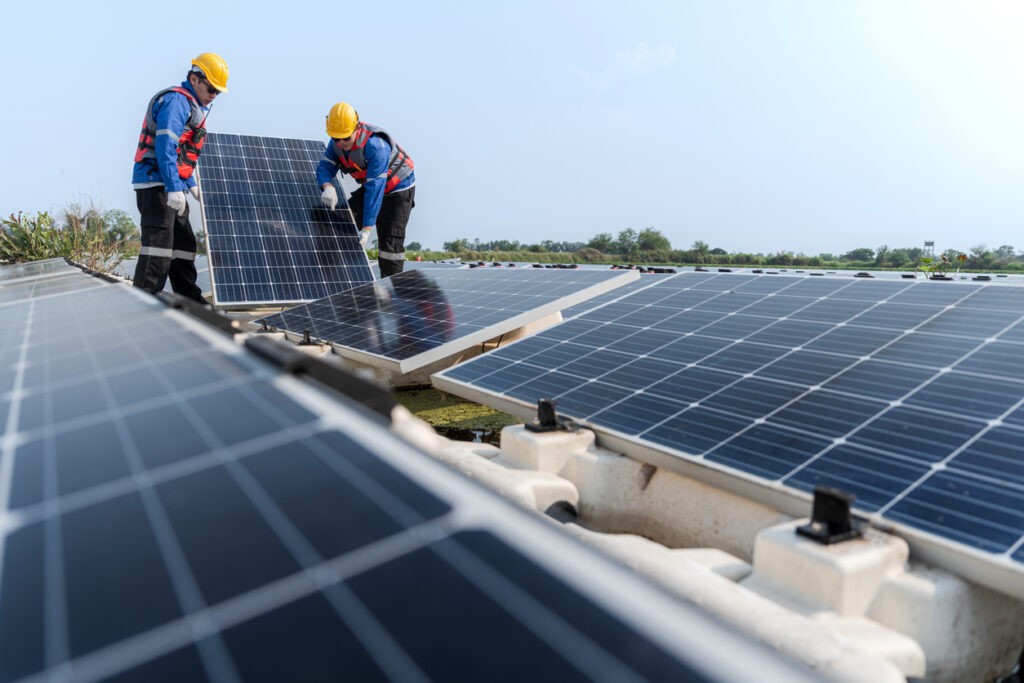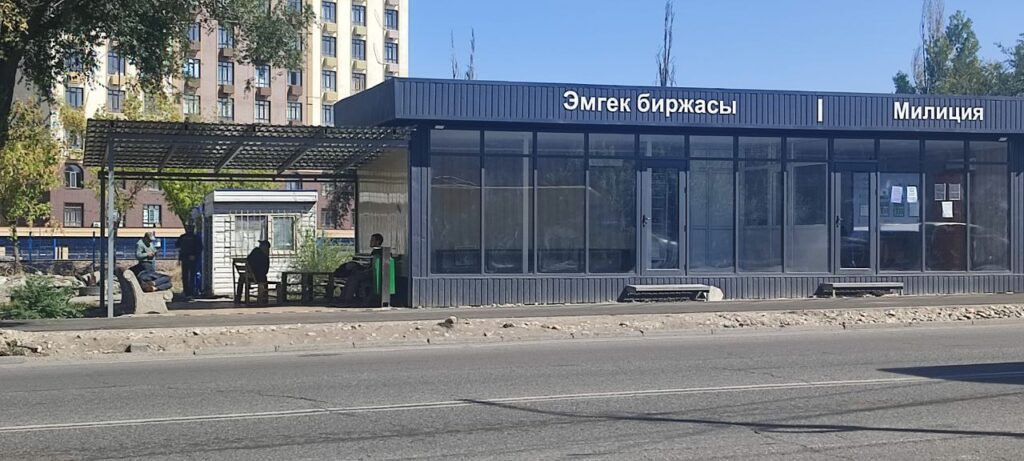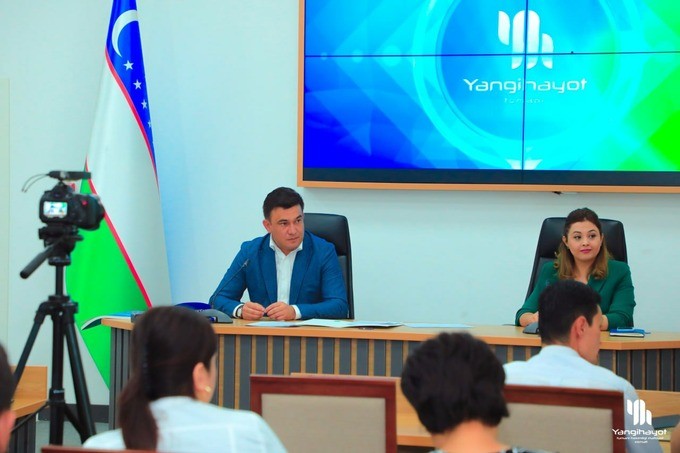BISHKEK (TCA) — Kyrgyzstan’s capital Bishkek is gradually turning from one of the greenest cities of the former Soviet Union into a gassed and smoggy one. The public outrage intensifies in cold seasons, when a shroud of smog covers Bishkek, and subsides in spring. The Government and state agencies regularly make decisions to improve the environmental situation in the capital but it is getting worse every year.
Environmentalists sounding alarm
At a press conference in Bishkek earlier this month, the MoveGreen public association of young environmentalists announced data on a huge excess of air pollution in Bishkek, up to 20-fold higher than international norms, after the private residential sector began to burn coal for heating homes.
The highest excess of the norm was not in the center of the city, but in residential areas where newly built houses are located.
The MooveGreen association suggested introducing of an emergency situation in the city. According to the WHO, solid particles cause pulmonary, cardiovascular and oncological diseases. It is particularly dangerous for children, the elderly and people with chronic heart and lung diseases.
Deputies of the city council proposed to establish environmental posts in Bishkek to measure the level of air pollution.
However, the well-known ecologist Emil Shukurov does not share both suggestions. “The state of emergency is introduced if the problem can be resolved quickly, but resolving of this problem needs several years at best, with the most intensive efforts,” he told Vesti.kg news agency.
Harmful emissions
According to ecologists, harmful emissions of motor vehicles, the Bishkek Thermal Power Plant, private sector heating, waste incineration and climatic conditions increase the smog over Bishkek.
Private heating devices in residential buildings are especially harmful because they burn coal at low temperatures and a significant part of the fuel does not turn into heat and non-hazardous gases, but into harmful toxic gases, mainly carbon monoxide, one of the components of smog, ecologists explain.
Moreover, local residents often use car tires and other waste as fuel to heat their homes. Previously, the townspeople heated their homes with electricity or gas, but now they mostly use stove heating.
The situation has been aggravated by the chaotic development of the city, located in the valley and not aired. High-rise buildings built across the streets prevent their blowing. The city center should not have buildings above seven floors, architects say.
As a result, the smog remains in the atmosphere and does not erode.
The Union of Architects of Kyrgyzstan proposes introducing a moratorium on construction in the center of Bishkek.
The ecological situation is also deteriorating due to the massive felling of trees in Bishkek. Trees are cut down not only in squares and parks but also along roads to expand them, thus reducing the “lungs” of Bishkek.
Over the past three decades, the area of green space has decreased to 3.5 square meters per inhabitant in Bishkek, which is six-fold less than the international norm.
Official position
According to the National Energy Holding, the Bishkek Thermal Power Plant does not affect the increase of smog in the city. Due to the TPP modernization and installation of modern smoke cleaning filters, emissions of harmful substances into the atmosphere are minimal.
The State Agency for Environmental Protection and Forestry (SAEPF) stated that air pollution in Bishkek is within acceptable limits. The level of air pollution in the city exceeds the maximum permissible norms 1.5-2.6-fold only, the Bishkek Meteorological Center reported. Meanwhile, the officials provided data for September when private houses were not heated.
The sensors MoveGreen is using are not accredited and not included in the Register of measuring instruments of the Kyrgyz Standard Agency, therefore, the readings of these devices cannot be trusted, officials added.
According to the SAEPF, cars are the main source of environmental pollution. The annual total pollutant emissions into the atmosphere in Bishkek amount to 240,000 tons, of which 180,000 tons are from motor vehicles.
About 400 thousand cars are officially registered in Bishkek, but in fact there are much more of them. In addition, thousands of cars drive into the city from suburban villages every day. Most of the cars are very old and are especially dangerous for the environment.
No reasons to worry?
There are no grounds for introducing an emergency situation in the city, because the excess in air pollution readings are not critical, Bishkek Mayor Aziz Surakmatov believes.
“There is no need to scare people. As for smog, regional administrations conduct inspections and submit daily information to me. There are facts of toxic gases from used car tires, garment production wastes, and garbage burned. The municipality is struggling with these phenomena,” Surakmatov said.
The environmental organizations should be honest with the public and warn about errors in the data they submit, but at the same time, state bodies should not lose the touch with reality and turn a blind eye to problems, Prime Minister Mukhammedkaly Abylgaziyev said. He ordered the Bishkek City Administration to hold talks with Gazprom Kyrgyzstan and speed up the connection of residential buildings to natural-gas supply.
The development of green areas and the transfer of businesses to environmentally friendly technologies could be a cardinal solution of environmental problems in the city, Abylgaziyev added.
In January 2018, then Prime Minister Sapar Isakov ordered to develop a comprehensive action plan to resolve the air pollution problem in Bishkek. He ordered to develop a detailed plan of measures to minimize emissions of harmful substances from the boiler houses in Bishkek and to gradually switch them from solid fuels to alternative energy sources. There are 60 boiler houses in Bishkek, and only two of them use renewable energy sources, receiving heat from solar energy.
In January, then First Deputy Prime Minister Askarbek Shadiev promised to replace minibuses in the city center until the fall with 350 large buses. However, as before, more than two thousands passenger minibuses (mainly aged Mercedes minivans) cause harmful emissions mainly due to engine malfunction.
Over the past ten months, the Prime Minister and the Government have changed, but the smog and transport problems remained.
How to improve the situation?
NGOs proposed to create a special environmental fund under the Government and to strengthen the social responsibility of the business.
It is vital to create a program to overcome the critical situation with the smog and carry it out. To save the ecology of Bishkek, it is necessary to reduce the number of old cars and demolish buildings that hinder the city’s air flow.
To reduce the number of cars, the city should improve its public transport system and transfer it to gas and electricity. This demands great money, which the State does not have.
In order people switch to electric or gas heating, certain preferences are needed, because not all residents can afford to give up relatively cheap coal in favor of expensive natural gas.
In addition, it is necessary to restore the “green lungs” of the city. Instead of each felled tree several new ones should be planted.









